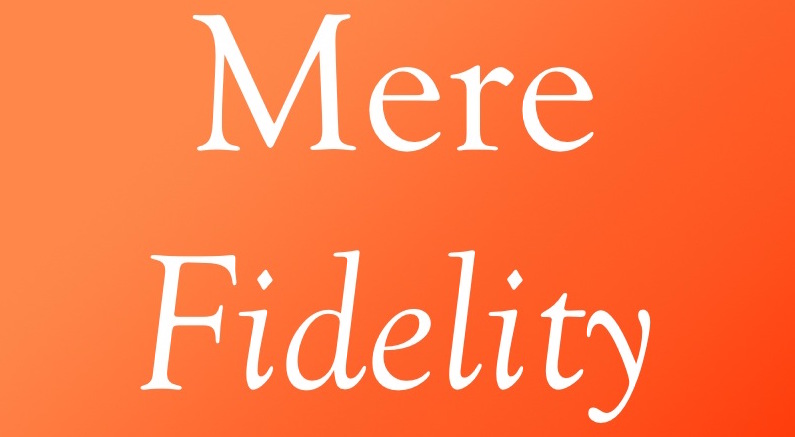Search for topics or resources
Enter your search below and hit enter or click the search icon.
May 18th, 2012 | 4 min read

David Sessions does yeoman’s work trying to disambiguate “culture wars” as a term:
I think most of us loosely think of culture warring as a special class of ressentiment, combat driven by a mentality of besiegement, symbolic struggle, and supposed existential threat to a cultural identity. But I’m not so sure we can make a clean separation between that and good old democratic disagreement. Democracy as we generally conceive it is a structure for managing and containing conflict, a framework for legitimate political struggle. There will always be factions, sides, particular interests, etc, and those imply we will have political friends and enemies. Deep down, I think describing serious political conflict as a “culture war” is part of the liberal allergy to vigorous debate; it tries to shove deep disagreements into a corner with some kind of label indicating that this is not welcome in “reasonable” discourse. “Culture warrior” is an epithet, used by the “sides” against each other and by bipartisan elites against all that shrill partisanship. But the reality is that certain issues like abortion, gay marriage, etc, are deeply divisive, and they symbolize and encapsulate dearly-held views about what is good and right in our country and the identities of people who hold those views. Despite what Washington pundits might tell you, people should have strong feelings about these issues, and they should fight about them. It’s called politics.
This presents a dilemma for Christians on opposite sides of political issues, who need to both remain faithful to their theological/moral/political beliefs and to love other Christians who disagree about those very charged issues. It’s hard to do, but it’s not impossible. And the worst thing that can be done, I think, is to keep using the term “culture wars” against people who disagree with your politics while, in the same breath, claiming you are tired of fighting. I don’t mean to pick on Rachel here, because she is a lovely person who is doing much worth admiring. I get what she’s trying to say, and I have even made these same arguments in the past. But in a post like this, she is taking a fairly clear political position: that evangelical political opposition to gay marriage is wrong. She opposes Amendment One. I agree with that position, but I can’t deny that it is a position, and that it puts me on a “side” of the “culture war.” (Similarly, Matt cannot convincingly claim he’s “not much of a culture warrior” when a significant amount of his work is devoted to energizing a conservative Christian worldview that has political dimensions he cares about passionately.)
I’d planned on saying something very similar to this to try to clear up how someone can be a conservative and say that folks should vote for conservative positions without being a “culture warrior,” but David has already done it for me. So make sure you read the whole thing.
The question that I am kicking around these days whether the hostile strands of democratic discourse are exacerbated during peacetime, as there’s no external foe that the factions can align themselves with. If (God forbid) the ludicrously implausible happened and Russia dropped a nuke on American soil, well, I suspect the “culture war” rhetoric would mostly recede to the background and we’d find a relative level of consensus. This is all hypothetical, of course, and I don’t have the time right now to read up on the relationship between the emergence of the Religious Right and the ending of Cold War. Perhaps some smarter folks will weigh in here.
I am more optimistic than David, though, about differentiating culture war ressentiment from the simple advocacy for positions on divisive issues. It’s fascinating to me that those who decry the culture war seem to have such an anxiety about doing so. Rachel’s solution, after all, is broadly to listen to stories. And she’s not alone in commending that sort of approach. I have suspicions that the wariness of “vigorous debate” has less to do with liberalism than it does with a particularly late-modern suspicion about assertion at all. Call it a “postmodernist” hangover, if you will, though the term is so contested as to probably not be useful. But ressentiment is a symptom of a deeper disease, and while David seems to point at liberalism I’m not yet convinced.
But those differences shouldn’t overwhelm what is the main point: David is almost exactly right about all of this. And as he uses “culture warrior,” he’s right to suggest that I belong in the class as well. My stance has largely been one of agreeing with many of the positions (though not all) of the Religious Right on matters of policy, while getting there by a different path. Non-culture war conservatism, if you will, if you’ll allow me to use “culture war” there to denote the “special class of ressentiment” that David describes it as. Whether I’ve been successful at this, well, God and the reader will be my judge. But even if I’ve failed, I’m optimistic that it can be done. And maybe next week I’ll say a few things about how.
Matthew Lee Anderson is an Associate Professor of Ethics and Theology in Baylor University's Honors College. He has a D.Phil. in Christian Ethics from Oxford University, and is a Perpetual Member of Biola University's Torrey Honors College. In 2005, he founded Mere Orthodoxy.
Topics: